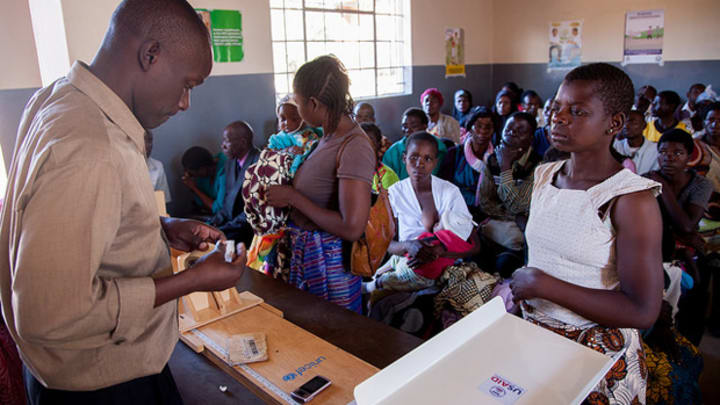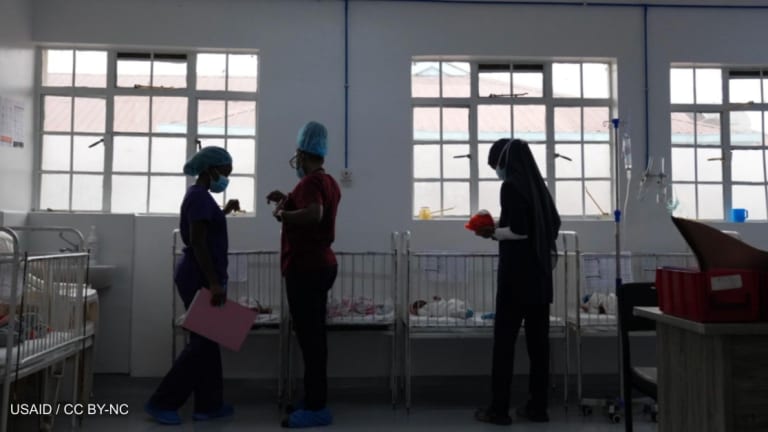
As a millennial, innovation usually translates into tech startups, new apps, and sleek electronics that drastically improve the way I live, work and connect with the world around me.
But as a Global Health Corps fellow at Malawi’s Ministry of Health, I find my nose pressed to the glass when there’s talk in our sector of new ideas and high impact technologies aimed at rapidly changing service delivery in the country. It’s easy to get excited about these conversations until I’m faced with the reality of government’s tight budgets, understaffed departments, decelerating bureaucracy and limited resources and infrastructure inside and outside the office. With these constraints, when does the average health ministry employee have the opportunity to think about health care innovation?
I read recently that half of Google’s 2005 new product launches stemmed from the company’s Innovation Time Off policy, where engineers are encouraged to spend 20 percent of their work time on personal projects. What if the health ministry had an innovation policy for its employees and a space for them to discuss new processes and possible solutions? Work plans are packed and there is high demand for services around the country, so how can we justify taking precious time from office work and the field to simply be innovative?
Here’s how.
Ministry staff are at the front lines of policy development. While they may not be making rounds in hospital wards, many are in the field assessing everything from district drug stock outs to leading trainings of trainers to manage preterm births. New policies are developed in part from their day-to-day experiences and input in high-level stakeholder meetings. Though these discussions can be fruitful, it is not usually an environment conducive to groundbreaking policy ideas. Participants often want to move forward with action plans and funding proposals that have a realistic shot of being approved. An innovation policy can encourage outside-the-box thinking on new procedures with no regard to budget restrictions or meeting donor requirements.
Administrative processes are important, too. This aspect of the health system is generally opaque to outsiders but does not make it any less fundamental to an effective and efficient health care system. Every step of the health delivery process should be innovative and that includes the organizational details behind the scenes. In global health we tend to champion the tangible victories while paying little attention to what I refer to as “invisible wins,” — the processes and achievements that allow us to get there. At the ministry of health, this includes less glamorous office work like planning for technical working group meetings and delivering documents to partners. Even with all the protocol and bureaucracy involved, giving staff opportunities to brainstorm and develop better ways to facilitate executive-level tasks is imperative.
Government isn’t going anywhere. Not many can argue the appeal and relative ease of implementing fresh, new ideas via other vessels besides government. But even with the rising emphasis on public-private partnerships and private sector engagement, Malawi’s health ministry will always have an integral role to play in maintaining and strengthening its health system. Establishing an innovation unit is an even more ambitious approach if a pilot innovation policy proves successful. The point is to ensure the health ministry continues to play a significant role alongside its partners in finding more cutting–edge approaches to carry out its mandates.
Supporting and implementing an innovation policy at the ministerial level does not have to be a costly or logistically complicated endeavor, nor does it have to be a luxury limited to profitable private companies in the tech industry. It can follow the format of a working lunch and be tailored to fit into staff work plans and include incentives for active participation. The setting can be less formal than stakeholder meetings, take place more frequently than conferences, and allow for an exchange of ideas in a safe space. Staff can explore country-appropriate solutions without having to pause and consider lack of resources, restrictive donor budgets, or being chastised for lofty ideas.
Innovation in global health should not flow exclusively from the private to public sector, nongovernment to government, or from “global north” to “global south.” New ideas can and should come from every stakeholder.
Want to learn more? Check out the Healthy Means campaign site and tweet us using #HealthyMeans.
Healthy Means is an online conversation hosted by Devex in partnership with Concern Worldwide, Gavi, GlaxoSmithKline, International Federation of Pharmaceutical Manufacturers & Associations, International Federation of Red Cross and Red Crescent Societies, Johnson & Johnson and the United Nations Population Fund to showcase new ideas and ways we can work together to expand health care and live better lives.




